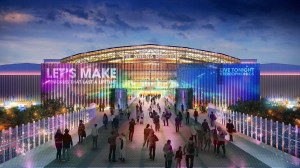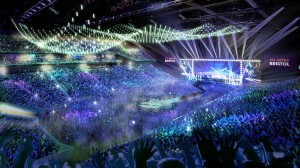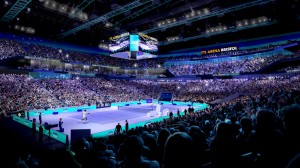Bristol’s long-hoped-for arena development has cleared its last hurdle with the Local Government Secretary deciding not to ‘call-in’ the plan.
The move means developer YTL can go ahead with construction of the 17,080-capacity venue in the Brabazon hangars on the former Filton Airfield, with an opening date of 2023. 
YTL said the decision was the final approval it needed to push forward its plans for the 26-acre site, which straddles the boundary between Bristol and South Gloucestershire.
It also ends a two decades long bid to bring a major music and events space to the city, which degenerated into a political row over its location and funding.
Malaysian-owned YTL said in a statement: “We will build the third largest arena in the UK, putting Bristol on the world stage for live music and entertainment.”
Bristol City Council’s planning committee approved YTL’s planning application for the arena complex on March 4 while 15 days later South Gloucestershire Council’s planning committee give the go-ahead to build a temporary 1,800 space car park, access for delivery vehicles and a Wembley Way-style pedestrian bridge over the Henbury Loop railway line, pictured above, which will serve as the main entrance to the arena.
Secretaries of state for planning matters have the power to call-in – or take over – major planning applications if they are of regional or national significance.
The current Secretary of State for Housing, Communities and Local Government Robert Jenrick is said to be happy with the decision made by the councils and saw no reason to further examine our application.
YTL Arena Complex, Bristol, managing director Andrew Billingham said: “During the current Covid-19 crisis this is especially welcomed news. It is a huge step forward for everybody in Bristol and the region. 
“We are fully committed to opening a venue that will inspire future generations, giving our great city a beating heart across the global music and entertainment industry.”
YTL, the industrial conglomerate that also owns Wessex Water and a string of international hotels, has vowed that the arena scheme will give the city a “365-day entertainment destination”.
The firm, which is also developing a major new housing and employment scheme on the former Filton Airfield – said the entertainment complex would create more than 500 jobs and inject £1.5bin into the local economy over 25 years, as well as raise the profile of the city and wider region.
The three hanger buildings, which have a total floorspace of 28,000 sq m, will be restored and transformed into a major arena, exhibition and leisure space all under one roof, it said. The hangars, built in 1946, have stood empty since 2009
The 17,080-capacity arena will be in the Central Hangar – making it the UK’s third largest after Manchester and the O2.
The East Hangar will house a new Festival Hall – a flat-floor event space for conventions, exhibitions. It will work in tandem with the arena to attract large-scale events.
The West Hangar will be renamed as The Hub and will become a place to eat, work and play, according to YTL, with leisure facilities, food and drink and a base for small or start-up businesses. 
YTL’s plans represent the latest chapter in the long-running saga to build an arena in Bristol.
Plans for an major indoor venue on disused land near Temple Meads railway station were officially announced as far back as 2003 – although the concept was being considered in the 1990s.
However, the idea for a 10,000-seat venue was abandoned in 2007 – only to be revived two years later but with the possibility of it being built at Ashton Vale in the south of the city.
In 2012 newly-elected Mayor George Ferguson proposed a 12,000-seat facility – “to be built within three years” – on land near Temple Meads, before that scheme too was shelved four years later by incoming Mayor Marvin Rees while a value-for-money report was written.
In November 2017 the Brabazon Hangar was named as a potential alternative site by YTL and the Temple Meads site was ruled out 10 months later by Mayor Rees. Unlike the Temple Meads plan, the cost of building YTL’s arena will not directly fall on Bristol council taxpayers.






























